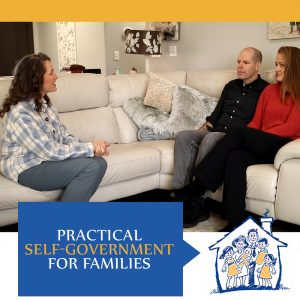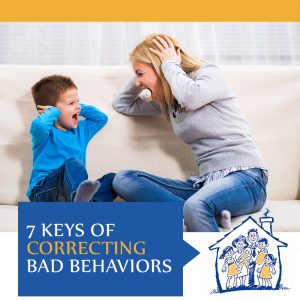[Support Group Gem Video] The Mother Stereotype
Funny Video! But A Sad Sign Of The Social Stereotyping That Is Ruining Mothers
By Nicholeen Peck
A friend of mine recently shared this video with me. It is very clever and I must admit that my first inclination was to laugh when I saw it. The video has become widely popular on the internet due to its ability to appeal to all people and because of its cleverness. But, after about twenty seconds the danger of this video hit me. Watch this video and see if you see what I saw.
The author of the lyrics for this song was a genius! She took every nagging moment a mother might have in a day and put it all to music. She expressed the comical mother stereotype in a very believable way.
Here Is The Problem
There is already a negative view of motherhood in western culture, so this video makes motherhood look like the stressful downer it is presented to be. A mother who would say this many things to micromanage another person seems like she is not okay in the head.
Do mothers actually say these things? Do they give all kinds of instructions and no answers throughout the day? Of course. Mothers are leaders in their spheres. So what is it about this mother’s version of these instructions and no answers that is so damaging? Her tone.
Throughout the movie, the mother gives the impression that saying these things is an awful experience for her. In fact, it even seems she sees herself as a victim in her motherhood. She is not enjoying the moments with her children and seems to suggest that she can’t wait until it is all over. The mother also comes accross as vindictive, which is just another form of selfishness. She is obviously perfectionate and has her children do good things like go to school and say their prayers, but it is all a check off list for her. (Of course this whole song is a bit of a check off list.)
So the first main message of the video is mothers have a lot on their plates and are crazy busy raising their children. The second message is that children are ‘a pain’ for mothers. The third message is that motherhood is a burden for the mother, and is best when it is all over. And the final lesson I see is that mothers are not emotionally stable.
This final lesson is the most discouraging for me because it feeds into a negative and false stereotype about mothers that is damaging for future mothers of the world.
When I was pregnant with Porter, my husand and I were at a play at a pominant university on the east coast of the United States. Before the play started the row of college girls behind us started talking really loud so as to make sure those around them heard the conversation. The first girl said, “Well, I’m not having any children.”
“Me neither. Who would waste a good life doing that?” Was added to the conversation amidst many other “Me neither” comments.
Then the leader of the group said, “Any woman who chooses to have children is mentally unstable.”
About two seconds later the play started.
My heart sank. “How could a whole group of young women have been brainwashed to not want families like that?” I thought. “Don’t they even know how much power they could have in society as mothers?” I wondered.
What if their mothers hadn’t chosen to have them? What did they think of their mothers? And if mothers were so bad, what did they think about fathers? Did they also believe common stereotypes about them too?
I realized that the only way all of these girls could have believed this new idea about motherhood when it was presented, wherever it was presented, was if their mothers didn’t actually show them they loved motherhood and how it fulfilled their needs and their purpose.
Parents need to, now more than ever, deliberately discuss their parent role with their children and explain how much they love it. They need to have fun with their role and their children and not think of it as something they must get through; or survive. If parents don’t love their roles as parents, then it is very possible that children today will believe the stereotypes that are in the media who portray mothers as mentally unstable and unnessecary, and fathers as bullies or naïve.
Self-Government To The Rescue
Why do we allow the stereotypes to exist? Easy, because we have a really hard time problem solving and managing the chaos that occurs. I could go into great detail about how we often times inflict the chaotic moments on ourselves, but that is a topic for another article. The point that needs to be made here is that most parents don’t have the skills they need to manage things at home the way they need to be run for happiness and harmony to exist.
Recently a grandma and grandpa came up to me at a conference and thanked me for helping their daughter and son-in-law learn self-government. The couple was apparently getting so burned out by their children that they would regularly go to their parent’s home and crash on the couch while the grandparents took a turn with the young kids. But, since the couple learned self-government skills they weren’t getting as burned out. They enjoyed their children now and had a vision of what life could be like.
When these parents learned skills they got confidence and their whole paradigm about parenting changed. They fell in love with the idea of being parents all over again. They found their roles once more and found happiness. Now the way their children see parenthood will be totally different too.
Identity is important. When a nation forgets who it is and how it began it loses it’s identity and its freedom. And, when a person forgets who they are supposed to be in a family or in society the same thing happens. When the person loses their identity they also lose their freedom to succeed and be happy. Our lives of purpose depend upon us knowing who we are and loving who we are. There is nothing more powerful than our identities.
Index
Facebook
Twitter
Pinterest
Telegram
Email
Print






